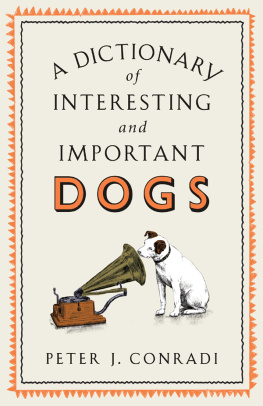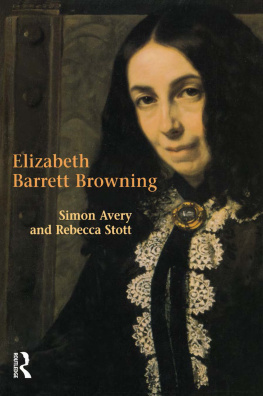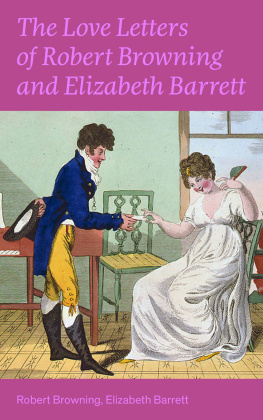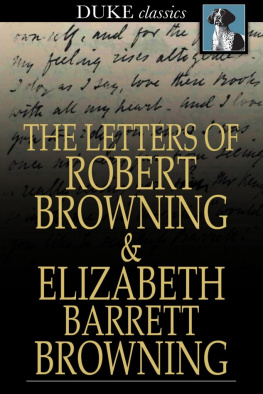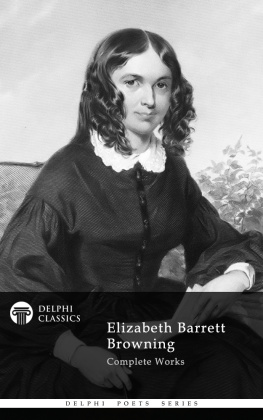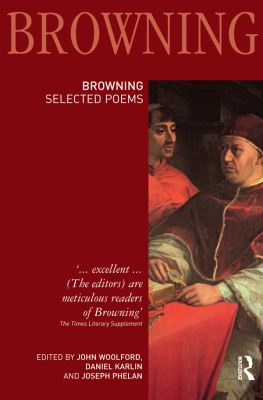A H ARVEST B OOK H ARCOURT , I NC .
San Diego New York London
Copyright 1933 by Harcourt, Inc.
Copyright renewed 1961 by Leonard Woolf
Introduction copyright 1983 by Trekkie Ritchie
All rights reserved. No part of this publication may be reproduced or
transmitted in any form or by any means, electronic or mechanical,
including photocopy, recording, or any information storage and
retrieval system, without permission in writing from the publisher.
Requests for permission to make copies of any part of the work
should be mailed to the following address: Permissions Department,
Harcourt, Inc., 6277 Sea Harbor Drive, Orlando, Florida 32887-6777.
Library of Congress Cataloging-in-Publication Data
Woolf, Virginia Stephen, 1882-1941.
Flush: a biography.
(A Harvest book)
1. DogsLegends and stories.
2. Browning Elizabeth (Barrett) 1806-1861Biography.
I. Title.
PR6045.072F5 1976 823'.9'12 76-14891
ISBN 0-15-631952-7 (pbk.)
Printed in the United States of America
First Harvest edition 1983
O Q S R P
Contents
INTRODUCTION vii
I. Three Mile Cross 3
II. The Back Bedroom 27
III. The Hooded Man 47
IV. Whitechapel 77
V. Italy 109
VI. The End 147
AUTHORITIES 163
NOTES 165
INTRODUCTION
ON 26 July 1926, Vita Sackville-West gave the Woolfs a cocker spaniel puppy which they named Pinka (or Pinker). She ate holes in Virginia's skirt and devoured Leonard's proofs. "But", writes Virginia, "she is an angel of light. Leonard says seriously she makes him believe in God ... and this after she has wetted his floor 8 times in one day". For nine years Pinka was the much loved companion of both Leonard and Virginia, though in time she became essentially Leonard's dog.
Loved as she was, the pattern of her life naturally became woven into the pattern of theirs. The daily habits; her walk with Leonard round Tavistock Square garden in the morning before the day's work began. Her joke of extinguishing, with her paw, Virginia's match when she lit a cigarette, and so on. Virginia mentions her again and again in letters and diaries.
In A Boy at the Hogarth Press Richard Kennedy gives glimpses of her. "L.W. was very nice to me: he asked me to walk round the Square with him. Pinka, L.W.'s spaniel, seems to be suffering from worms and drags his (sic) bottom along the carpet in the office but this does not seem to worry L.W." And two years later, "The other day when L.W. was making an entry in a ledger Pinka calmly climbed on a chair and licked his nose. They have got to look rather alike. Pinka's nose is getting rather grey".
In 1934, on a visit to Ireland while staying with Cyril Connolly in Limerick, Virginia writes, "We went to the wishing well, where there are broken cups as offerings and half a rosary and L wished that Pinka might not smell". And finally the sad entry in May 1935. "Home again, and how queer, as we drove up there was Pinka's basket being carried up by Percy, and she had died yesterday: her body was in the basket. Just as we were saying that we would see her in a moment ... So that's what's bound to happen we said. A very silent breakfast. I had been saying how she would put out my match and all the usual jokes. And the intensity of the sense of deatheven for a doghow oddour feeling of her character, and the grotesquenesssomething pathetic, and the depression, and the I suppose fear of sentimentality, and so on".
Pinka was Flush.
The first mention of the book occurs in Virginia's diary on 7 August 1931: "writing Flush of a morning, half seriously to ease my brain, knotted by all that last screw of The Waves". On 16 September, in a letter to Vita Sackville-West, she asks for a photograph of Vita's spaniel 'Henry' for, says she, "I ask for a special reason connected with a little escapade by means of which I hope to stem the ruin we shall suffer from the failure of The Waves". This must be the photograph used as the frontispiece of the book.
The failure of The Waves was, of course, an imagined one. Always on completing a work Virginia was in a state of agony as to how it would be received and always feared the worst. But The Waves had indeed demanded a great deal from her and she was exhausted, and so the thought of writing a short light book was attractive. The idea of making a story about the Brownings' dog came to her when she read the Browning letters; as she tells an American admirer who had written to her asking if he might buy the manuscript, "I am very glad to think that you share my sympathy for Flush. The idea came to me that he deserved a biography last summer when I was reading the Browning letters. But in fact very little is known about him, and I have had to invent a good dealthe more I know him, the more affection I feel for him. The dog who acted his part was blackbut there can be no doubt that Flush was red".
As an artist makes quick studies on the backs of envelopes or whatever may be handy, and later uses these in the creation of a picture, so Virginia drew on her acute visual memory and daily observations of Pinka to create Flush. Flush has human thoughts, of course, but throughout the book he is physically there as a real dog. His relationship with his mistress, a particularly spaniel relationship, is perfectly imagined and recorded. He is content to lie beside her on the sofa (in what must have been a very stuffy room) for hour after hour, content so long as he is beside her. Of course he resented the intrusion of Mr. Browning, exactly as one knows a dog would. His emotions are as accurately explored as his physical appearance is drawn for us. He thinks as Virginia would think if she were a dog, but he looks and acts as a dog would look and act from youth to old age.
Flush dances through the meadows as a puppy. "The cool globes of dew or rain broke in showers of iridescent spray about his nose; the earth, here hard, here soft, here hot, here cold, stung, teased and tickled the soft pads of his feet. Then what a variety of smells interwoven in subtlest combination thrilled his nostrils...".
Then suddenly and completely his life is changed, he becomes Miss Elizabeth Barrett's dog. Now he must accustom himself to a stuffy room and to an almost totally indoor life. "The traffic droned on perpetually outside with muffled reverberations: now and again a voice went calling hoarsely, 'Old chairs and baskets to mend', down the street: sometimes there was a jangle of organ music, coming nearer and louder; going further and fading away. But none of these sounds meant freedom, or action, or exercise. The wind and the rain, the wild days of autumn and the cold days of midwinter, all alike meant nothing to Flush except warmth and stillness; the lighting of lamps, the drawing of curtains and the poking of the fire".
Finally there is the old dog in Florence. "The market woman scratched him behind the ear. She had often cuffed him for stealing a grape, or for some other misdemeanour; but he was old now; and she was old. He guarded her melons and she scratched his ear. So she knitted and he dozed. The flies buzzed on the great pink melon that had been sliced open to show its flesh. The sun burst deliciously through the lily leaves and through the green and white umbrella. The marble statue tempered its heat to a champagne freshness. Flush lay and let it burn through his fur to the naked skin. And when he was roasted on one side he turned over and let the sun roast the other".
How real he is lying there twitching in the sunshine. But though he seems to have been so effortlessly created for us, writing the book did not prove as easy a task as Virginia had anticipated. Her mind had already become engrossed in the novel which she first called "The Pargiters" and which was published as
Next page


